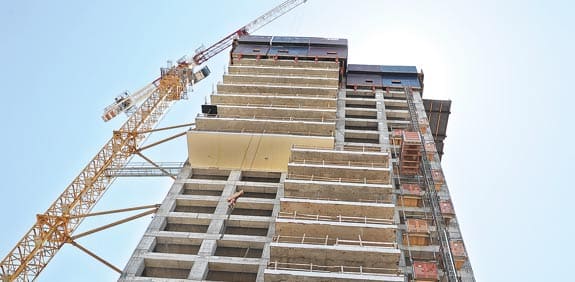Israel: Q1 of 2015 sees 36% increase in new home sales
New home sales increase occurs as finance minister Kahlon readies new initiatives to contain rising prices.
As of yesterday, the sale of new homes has increased 36.1% in the first four months of 20015 compared to the same period last year.
The increase was particularly sharp in northern Israel, where home sales jumped approximately 90% from a year earlier, but the numbers jumped everywhere: 40% in the south, 34% in the greater Tel Aviv area, 31% in greater Jerusalem and 23% in the Haifa area, the CBS said.
The pace of home sales experienced a growth of an average of 4.9% a month from June last year until April 2015, reversing a monthly decline of 3% in the previous 10 months.
The numbers came two days before Finance Minister Moshe Kahlon is due to convene the first meeting of the housing cabinet, which will consider a package of reforms aimed at speeding residential building by cutting planning-approval red tape, freeing up apartments now used as offices for housing, and deterring property investors by raising taxes.
It seems Kahlon is determined to do something about the price of homes in Israel, which has been soaring at a rapid rate for a decade now. home prices, which the Government Appraiser’s Office said rose 4% for a basic four-room house in the first quarter from the same time in 2014.
Benjamin Netanyahu’s chief economic adviser Eugene Kandel on Wednesday, estimated prices are currently 30% higher than what they should be because Israelis are buying real estate out of fear prices will keep rising, putting homes out of their reach.
Karnit Flug, the Governor for the Bank of Israel told a real estate conference on Wednesday that home prices in Israel since 2007 had risen faster than they have in most other countries, but looking at the period since 2000, they had not.
Giving her apparent backing to the Kahlon plan, Flug said it wasn’t enough to make more land available for building, maintaining that land-planning programs also had to be developed far enough in advance so builders could develop the land they buy.
[cta id= »4285″ vid= »0″]
Flug added that mortgage repayments had actually fallen in recent years even as home prices rose because of low interest rates and longer payment terms. Still, the lowest-income groups face a much heavier burden buying a home, with an average of 144 monthly salaries needed to buy a home for the lowest decile of earners, compared with 60 months for those in the highest decile, even though top earners buy more expensive homes.



